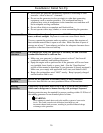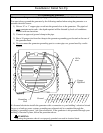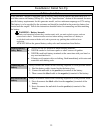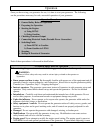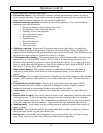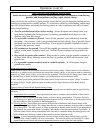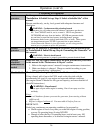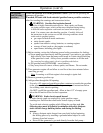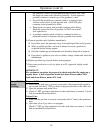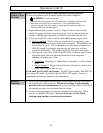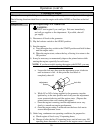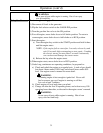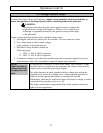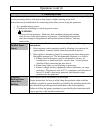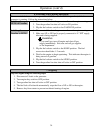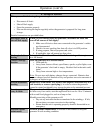
Operation (cont’d)
28
the generator’s tank is not grounded and high velocity flow from
the pump can cause static electricity build-up. Use an approved
portable container to transfer gas to the generator’s tank.
• Never fill the portable gas container while it is sitting inside a
vehicle, trailer, trunk, or pick-up truck bed. ALWAYS place
container on the ground to be filled.
• Keep nozzle in contact with portable container while filling.
Manually control the flow of gasoline; do NOT use nozzle’s
lock-open device.
• A portable container made of metal or conductive plastic is
preferred because it dissipates charge to ground more readily.
5) Clean up gasoline spills /splashes immediately.
• If possible, move the generator away from spilled gasoline on the ground.
• Wipe up spilled gasoline, and wait 5 minutes for excess gasoline to
evaporate before starting engine.
• Gasoline soaked rags are flammable and should be disposed of properly.
• If gasoline is spilled on your skin or clothes, change clothes and wash skin
immediately.
6) Replace gasoline cap securely before starting engine.
7) Store extra gasoline in a cool, dry place in an UL-approved, tightly sealed
container.
IMPORTANT:
For continuous operation, be prepared to check and refuel the engine on a
regular basis. A tank of gasoline should last about 4 hours under 100%
load, and about 8 hours under 50% load.
Start LPG/NG
supply
(if using)
Propane (LPG)
:
1) Make sure the fuel hose is securely connected to the propane tank regulator
on one end, and the ¾” NPT gas inlet on the generator base on the other end.
2) Open the propane tank main valve.
3) Check ¾” NPT gas inlet connection for leaks each time you connect. Use the
leak test method described below.
Natural Gas:
1) Make sure the gas line is securely connected to the ¾” inlet on the generator
base.
2) Open line valve, if gas line is so equipped.
Check ¾” NPT gas inlet connection for leaks each time you connect. Use the
leak test method described below.



